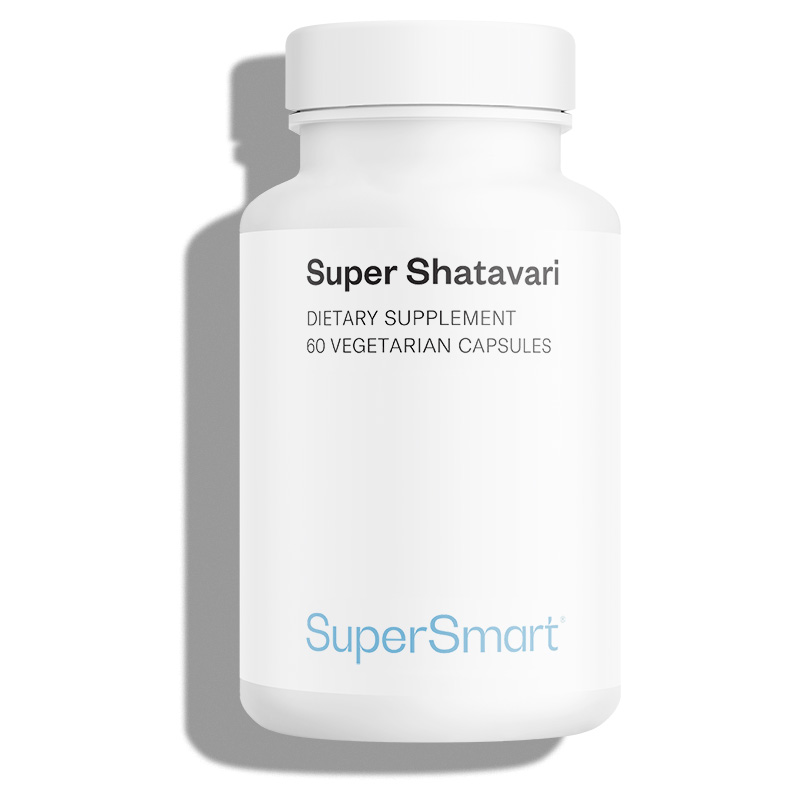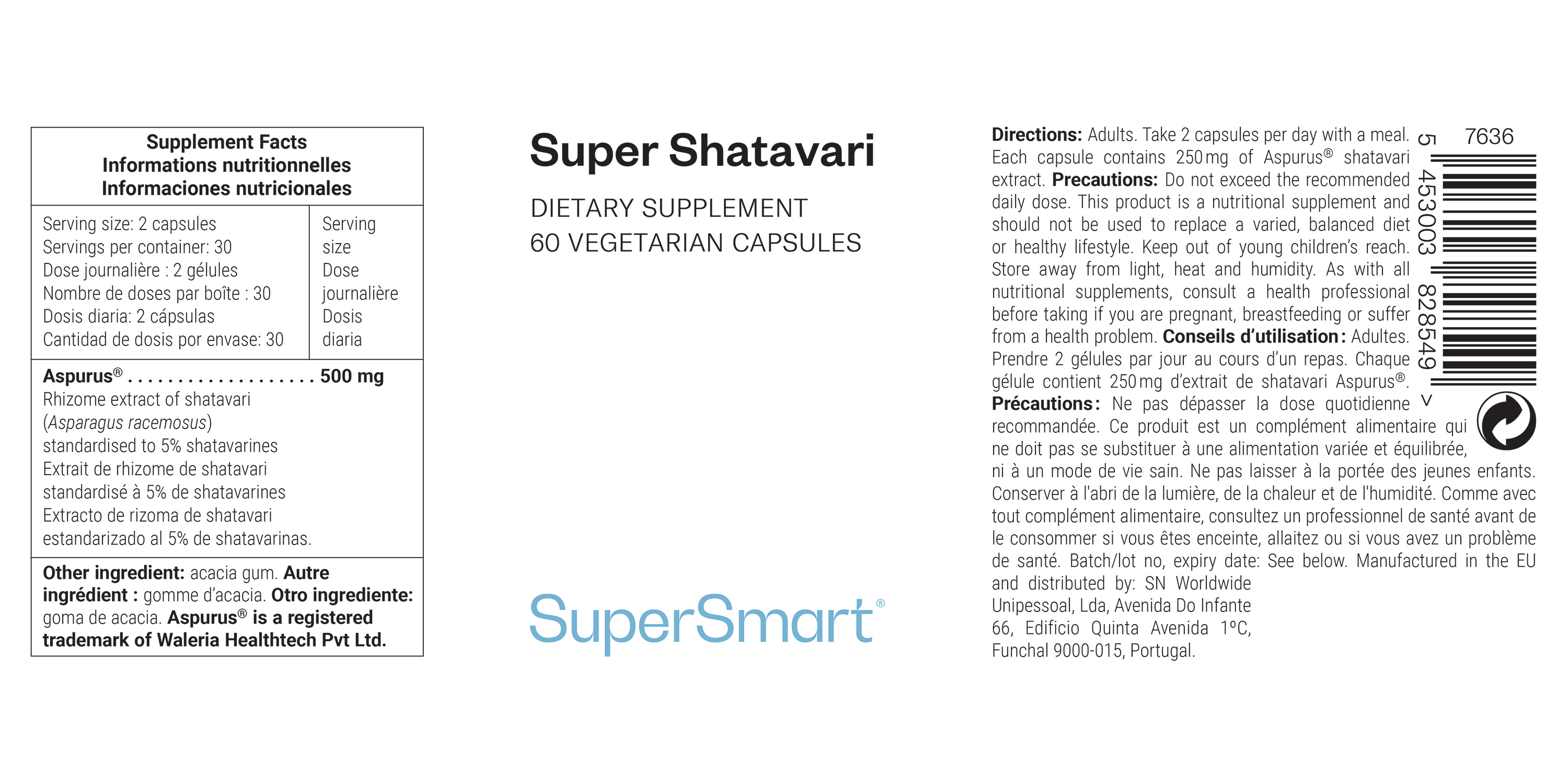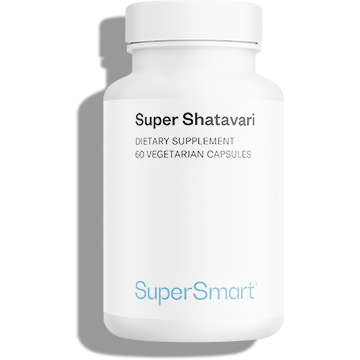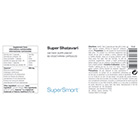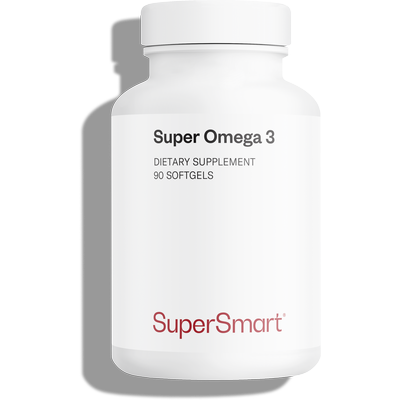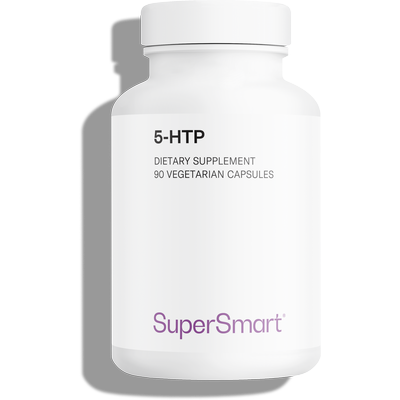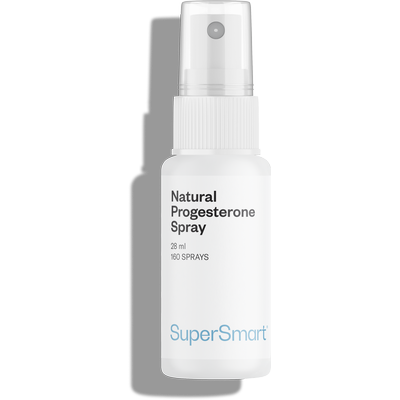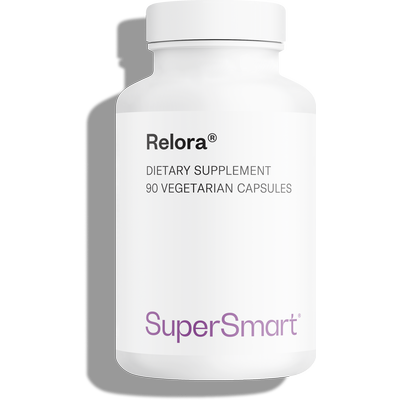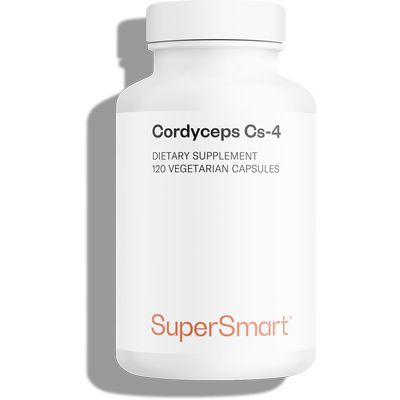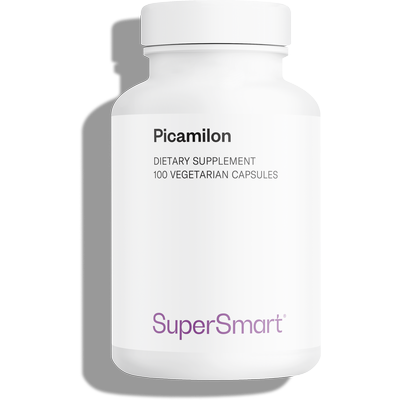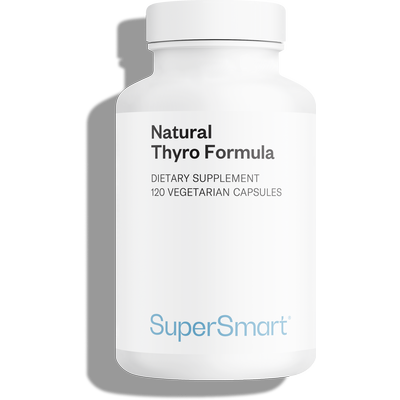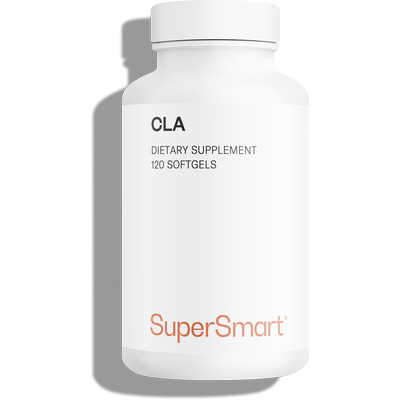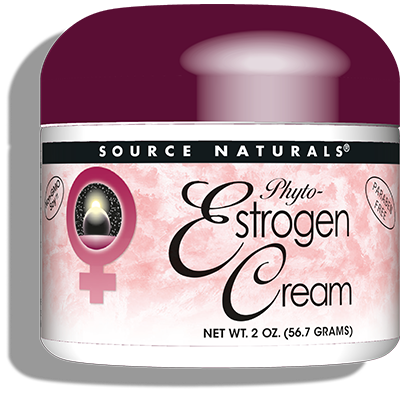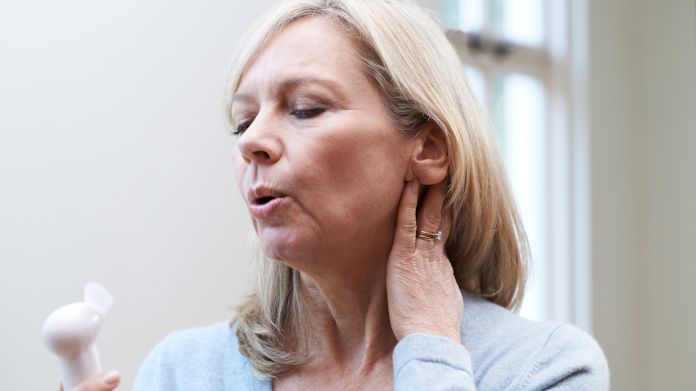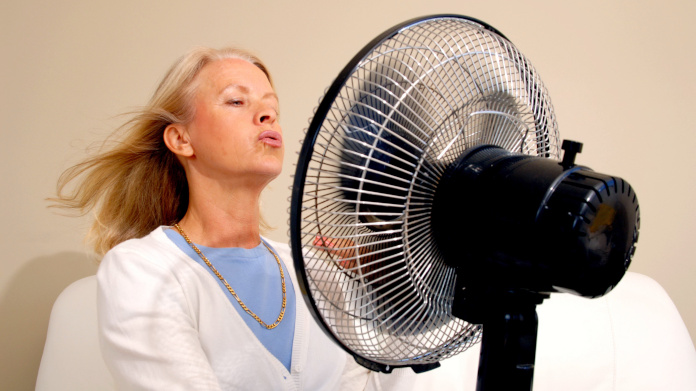Limited quantity
Super Shatavari
Shatavari supplement: benefits for women going through the menopause
Complete your selection
The supplement Super Shatavari is an extract of shatavari root rich in benefits for the health and physiological equilibrium of women in particular.
This Ayurvedic plant is best known for supporting quality of life in women going through the menopause.
Super Shatavari is therefore part of our menopause product category.
What are the benefits of shatavari root extract?
Definition of shatavari
Shatavari, also known as wild asparagus, (Asparagus racemosus), is a herbaceous climber native to India.
It is rich in steroidal saponins, including the important shatavarins (1).
The roots of the plant (more specifically the rhizome, the subterranean stem that stores nutrient reserves) are considered to be an invaluable aid to female well-being in Ayurveda, the traditional Indian system of medicine.
Benefits of Shatavari in Menopause Proven by Clinical Study
Shatavari root (or rhizome) supports female health and quality of life during the menopause, the stage in a woman’s life when ovulation and periods cease.
The plant’s properties come from its oestrogen-mimetic shatavarins, ie, compounds that mimic the activity of the female hormone oestrogen, production of which decreases with the cessation of menstruation.
These benefits have been confirmed by a randomised, double-blind, multi-centre, placebo-controlled study on Aspurus®, a shatavari rhizome extract (2). The 8-week study involved 70 patients aged 40-65, randomly allocated to one of two groups of 35 subjects. Throughout the study, one group was given 250mg of Aspurus® twice a day, while a placebo group received microcrystalline cellulose (neither knowing which they had been given).
At the end of the study, those who had taken the Aspurus® saw a significant reduction in their symptoms. The decrease in the number of women suffering from:
- hot flushes was 89%;
- night sweats was 88%;
- fatigue was 94 %;
- insomnia was 86%;
- anxiety was 83%;
- mood swings was 75%.

Women in the Aspurus® group also noted a 34% increase in the quality of their sex life, related to a decrease in vaginal dryness and loss of libido.
Those taking Aspurus® therefore saw a considerable improvement in their quality of life, compared with those in the placebo group, with no significant side-effects reported.
Other benefits of this root
Shatavari rhizome is also traditionally used and/or studied for promoting stress reduction (3-4), muscle preservation (5), hormonal health and female fertility (6), production of breast milk in nursing mothers (7), vitality of the male reproductive system (8), immunity (9), and cardiovascular (10), renal (11) and digestive health (12).
What are the four strengths of this shatavari supplement?
Super Shatavari stands out in 4 key aspects:
- its clinically-validated branded extract: we have chosen the high-quality extract Aspurus®, which showed impressive results in the above-mentioned clinical study (13);
- its standardisation in shatavarins: Aspurus® is standardised to 5% shatavarins, the plant’s most active ingredients, unlike the majority of other such extracts on the market which are only standardised in saponins. Shatavarins are actually the particular saponins which are responsible for shatavari’s properties. This high shatavarin concentration is what guarantees our extract’s exceptional efficacity;
- its excellent dose: this supplement offers an optimal and safe dose of 250mg twice daily, ie, 500mg a day of shatavari extract. This is the exact same dose as that used in the clinical study;
- its natural form: our extract comes in vegetarian capsules with the 100% natural acacia gum the only excipient.
What is in Super Shatavari
Any questions?
Shatavari balances hormones by providing oestrogen-mimetic compounds which modulate oestrogen activity.
This effect is particularly relevant for women going through the menopause.
According to Ayurvedic medicine terminology, this plant has a sweet and bitter rasa (taste) and an ability to rebalance the pitta dosha (reducing excess inflammation) and the vatadosha (easing nervous tension).
Taking this plant extract may be particularly beneficial in the following circumstances :
- once the menopause has started to help reduce its various symptoms (hot flushes, night sweats, tension, vaginal dryness, lack of libido, etc.) ;
- based on traditional use, the plant may also offer benefits throughout reproductive life, supporting fertility and/or helping women balance their hormones during the menstrual cycle (including the pre-menstrual period, often marked by unpleasant physical and emotional symptoms) ;
- and according to other traditional uses, for supporting breastfeeding, strength, immunity, etc.
In terms of dose, take 2 capsules of Super Shatavari a day with food.
While this adaptogen plant is not primarily known as a slimming supplement, it may support a weight loss diet through its effects on:
- the hormone system (reducing water retention and improving metabolism through hormone regulation) ;
- the digestive system (stabilising digestion) ;
- combatting stress (since anxiety can lead to overeating and/or excess storing of fat).
However, this potential role needs further, in-depth investigation
The cessation of menstrual cycles is often accompanied by a loss of bone density which makes bones weaker and thus increases the risk of fractures. So alongside your Super Shatavari supplement, you could also take a specific bone health supplement (such as Super Bone Formula).
A decline in cellular energy production is also a feature of advancing age, leading to a deterioration in the body’s functions and increased vulnerability. Some supplements combine natural compounds related to the function of mitochondria, the cells’ powerhouses (such as Daily Booster).
And if you’re keen to maintain healthy, radiant skin, strong, shiny hair and break-free nails, then in tandem with shatavari extract, you could take an all-in-one beauty formulation rich in collagen peptides, hyaluronic acid, solubilised keratin, biotin, etc. (with Daily Beauty).

